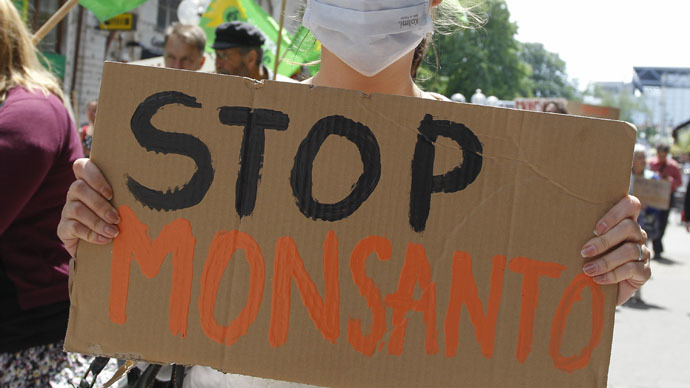Monsanto plans 'corporate inversion' move to UK, wooed by Osborne’s low taxes

Monsanto, the agrochemical and seed giant, is eyeing a move to the UK as part of a complex merger with Swiss rival Syngenta that would take advantage of Chancellor George Osborne’s lower corporation tax rate.
The US firm is proposing a so-called “corporate inversion,” or “tax inversion,” which would involve setting up a new company registered in the UK.
Syngenta rejected the $45 billion revised bid from Monsanto on Monday, priced at $489.84 per share – a 43 percent premium on current prices.
The US agrochemical firm, known for its genetically modified (GM) crops, also offered a $2 billion termination fee to be paid in the event an anti-trust regulator blocks the merger.
Under the plan, Monsanto investors would end up with a 70 percent holding in the UK company while investors in Syngenta would take the rest.
Congress should pass Stop Corporate #Inversions Act to close the loophole that allows corporations to avoid their tax responsibility
— Senator Dick Durbin (@SenatorDurbin) June 8, 2015
Syngenta shareholders would also receive cash, which when combined with shares in the new firm would reach a total value of around $45 billion.
“A new parent company, domiciled in the UK, would demonstrate that our merger will create a new global enterprise … [and] provide additional synergies,” Monsanto CEO Hugh Grant wrote.
“We would also propose a new name for the combined company to reflect its unique global nature.”
The Swiss firm rejected the offer, saying it included “the same inadequate price, same inadequate regulatory undertakings to close, same regulatory risks.”
READ MORE: World stands up against Monsanto: Over 400 cities protest GMOs
READ MORE: Monsanto fined $600k by EPA for uncontrolled releases of toxic chemicals
Britain has become a more attractive destination for corporations to set up their headquarters since Chancellor George Osborne cut corporation tax from 21 percent to 20 percent and established generous rules on the taxation of complex overseas subsidiaries based in the UK.
The corporation tax rate in the US is 35 percent, one of the highest in the developed world.
A wave of “inversion” deals last year prompted President Barack Obama to label the practice “unpatriotic” and introduce new laws in a bid to limit the transactions.
Despite this, three American companies have made inversion agreements to relocate their headquarters outside the US since September.
Pharmaceutical giant Pfizer’s effort to merge with the UK’s AstraZeneca last year was an attempt at “corporate inversion.”
Monsanto came under fire from US senator Dick Durban on Monday, who accused the firm of attempting tax avoidance.
The Democrat from Illinois said: “It’s clear that Monsanto – a company that has prospered and expanded in large part due to US taxpayer-funded programs and services – intends to reincorporate overseas as part of its proposed acquisition of Syngenta in order to avoid paying US taxes.”
“Hundreds of millions of dollars that could be invested in the infrastructure, education and research that companies rely on will be lost if Monsanto is allowed to go through with this corporate inversion scheme.”
Durban has joined Senator Jack Reed and Representatives Sandy Levin and Lloyd Doggett – all Democrats – to introduce the Stop Corporate Inversions Act of 2015.
Monsanto executives will meet Syngenta’s investors and its own shareholders in Europe this week in a bid to shore up support for another merger bid.












